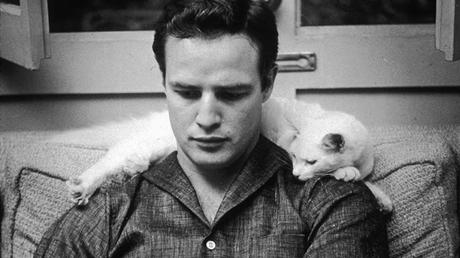
"Listen to me, Marlon...This is one part of yourself speaking to another part of yourself. Listen to the sound of my voice and trust me. You know I have your interests at heart. Just relax, relax, relax. I'm going to help you change in a way that will make you feel happier, more useful...I want you to accept what I say as true. What I tell you here and now is true."
- Marlon Brando, self-hypnosis tape, 1996
Stevan Riley Listens to Marlon Brando
By Alex Simon
In addition to being widely regarded as the greatest film actor of all-time, Marlon Brando, who died in 2004, remains one of popular culture's great enigmas. A man who fiercely guarded his privacy and shunned the spotlight whenever he could, Brando purchased an island in the South Pacific, a place so remote and removed from the western world and its media. It was the only place he found solace during the latter part of his tumultuous 80 year life.
Documentary filmmaker Stevan Riley, with the cooperation of the Brando estate, has put together a remarkable film, told mostly in Brando's own words, entitled Listen to Me Marlon. Culled from hundreds of hours of interviews and self-made audio tapes by Brando himself, the film offers a candid portrait of one of the 20th century's most provocative and complicated artists.
The Showtime/Passion Pictures production opened in New York July 29, hits Los Angeles July 31, and premieres on Showtime this fall.
Director Stevan Riley spoke to us during a recent stopover in L.A. Here's what was said:
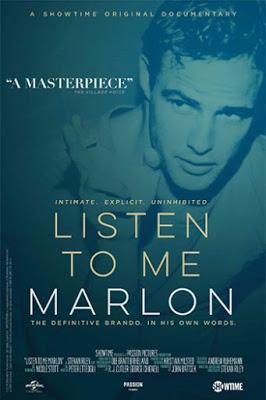
How was this idea born for you?
Stevan Riley: I was approached by a producer I knew in London about whether I'd be interested in doing a film on Brando. I didn't know much about him prior to researching the film, although I'd always been a fan of his work. My instinct told me he'd be a complex, fascinating character.
How did you get access to all those volumes of tape that he recorded?
Because his estate approved the project, we had access to virtually everything Brando had. They were just archiving it all when we began. Once I started listening to them, many were long, intimate conversations with friends. I ended up cutting out the friends' voices, so it could become a story told in Brando's own words.
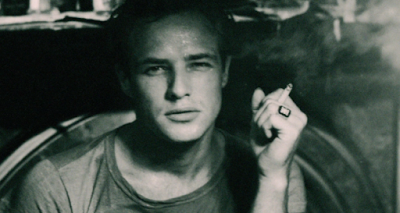
You mentioned you didn't know much about Marlon Brando going into this. What were some of your major revelations during the course of the research?
I just found that many of the myths that clung to him were incorrect. I tried to go into it with an open mind, not sure if I would actually find myself liking him at the end of it all. In the film, he talks quite openly about some of his shortcomings and regrets. He was a bundle of contradictions, really, as we all are: he could be the idealist, he could be the arch cynic, he could be gentle, he could be violent.
Do you think he was bi-polar?
I'm not sure. He did have severe panic attacks and had a pretty severe nervous breakdown in his early years, around the time of Streetcar and On the Waterfront. So he was fragile in that sense, but I don't think that was his default setting. I think at heart he was quite optimistic, but the world let him down so many times over the years, his world view became very cynical, although he was able to have a certain logic surrounding his cynicism. I think he was very fearful, particularly of abandonment, like he had an empty space within him he was trying to always fill, be it with food, women, work.
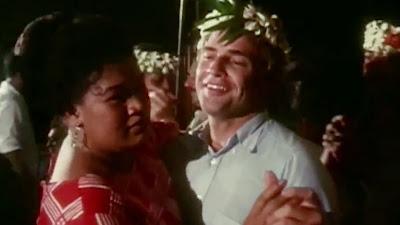
I assume one of the books you read during the research was Brando's autobiography, Songs My Mother Taught Me. What I took from the book was that his IQ was off the charts, and his entire life was devoted to a certain sense of self-analysis.
Yes, and analysis of others. He loved as a young man to just sit in a cigar store and watch all the people come in or pass by. As an old man, he'd park his car and watch people at bus stops, just study them. It was lifelong obsession: how people behave.
He was a sociologist at heart.
Yes, exactly.
A lot of his issues seemed to have been very Freudian, stemming from his relationship with his father.
I think that's true, yeah.
I loved the clip you showed from Edward R. Murrow's Person to Person, the way Brando couldn't conceal his hatred of his father when he entered the room.
Yeah, it was like a latent rage. If you look at that clip, then at his interview with Dick Cavett, which was about fifteen years later, his entire countenance is different. It was such a different phase of his life and he was like a different person.
That was around '72, the year of Last Tango and The Godfather, right?
Yes, and he was very involved with the American Indian Movement, as well. Several people I interviewed said that he was actually quite fragile at that time, was quite dependent on prescription drugs, had just come out of a tumultuous relationship with an actress called Jill Banner, and you can see it all over him in the interview.
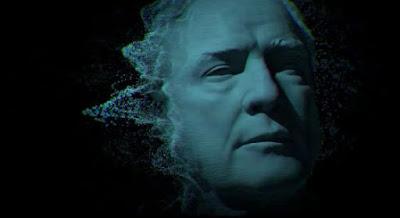
I don't think any other film in history has an actor lay himself bare, as Brando does in Last Tango in Paris. Apparently many of those monologues were improvised by him and were autobiographical.
He really plumbed the depths in that role, although sometimes he tried to play it down, but I really think that role took a toll on him, that he felt he'd put too much into it, but he was seduced by the idea of putting truth into the cinema, and there you have it. Bertolucci really got his number on that, tapped into his artistic sensibility, but I don't think Brando was prepared for the final result.
Talk to me about how the 3-D head of Brando speaking came to light.
I kept thinking of different visual devices we could use, to create a ghostly, ethereal sense of Marlon being in the house. Then I heard about a scan that had been done of Brando's head. When we finally got the scan, which was quite old, we were able to digitize and decode it, and just in the nick of time. It was right before we had to deliver the film. Then we got an actor to lip-synch Marlon, some animators came in and did some great work, and in the end, it sort of anchors the entire piece.
